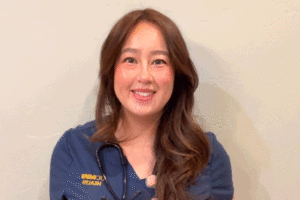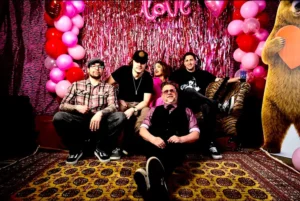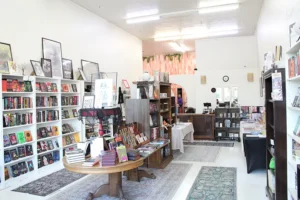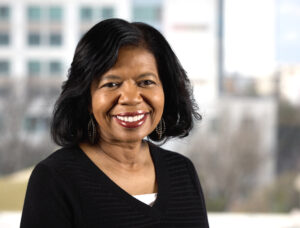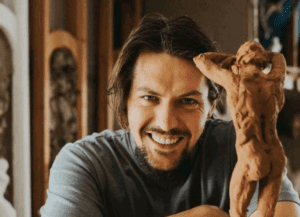For Jerry Montoya, storytelling began at home. Growing up in a Mexican-American household, he recalls the power of stories to bring family together and pass down wisdom, humor and family identity. Those early experiences shaped the way he sees theater today, not just as performance for performance’s sake, but as an act of connection.
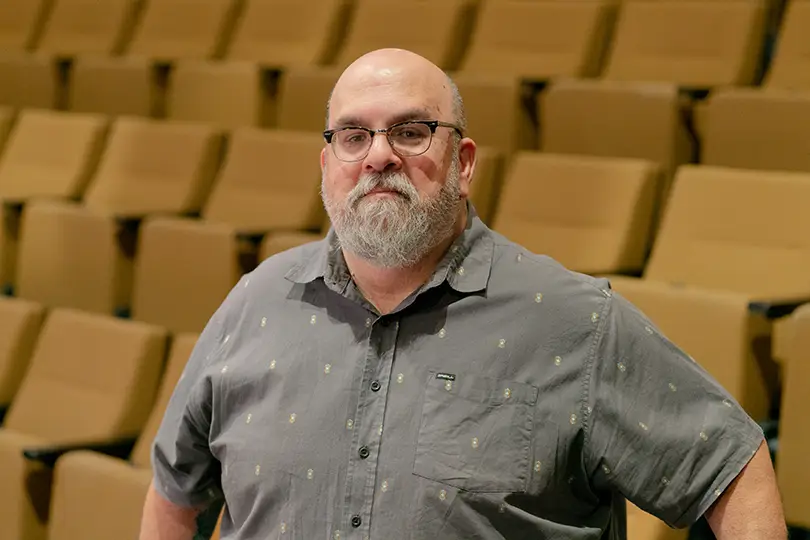
Now the executive producer of The Sofia, Home of B Street Theatre, Montoya continues that tradition by fostering stories that reflect and unite his community. Ahead of his appearance at the next In a Nutshell storytelling event on Thursday, Oct. 30, Montoya spoke about his creative roots, Sacramento’s arts scene and why honest stories matter most.
What inspired your love of storytelling?
I grew up in a Mexican-American family where stories were just part of the culture. You’d hear stories from your parents and grandparents — some funny, some serious, but all of them carried something about who we were. That was where I learned how powerful a story could be.
When I got older, I realized storytelling was how I made sense of the world. It’s how I connect with people and understand myself. It’s always been part of who I am.
You’ve worked as a playwright, director and producer. How do those roles complement each other?
They all feed into each other. As a playwright, I’m building the story; as a director, I’m shaping how that story comes to life; and as a producer, I’m making sure it can actually happen.
Each role gives me a different perspective, but the goal never changes: It’s about finding the truth of the story and making sure it reaches the audience.
What drew you to The Sofia and B Street Theatre?
B Street always had this great energy — it was about the people and the stories. When I first came here, what drew me in was the sense of community. It wasn’t just about putting on shows, it was about creating a home for artists.
The Sofia gave us room to grow that mission. The space changed things — more programming, more audiences, more ways to connect — but the heart of it stayed the same.
What do you think makes Sacramento’s arts community special?
It’s the people. There’s an authenticity here that you don’t always see in bigger cities. Artists in Sacramento aren’t here for fame; they’re here because they love the work.
There’s also a lot of generosity; artists collaborate, they support each other, they show up for one another. That’s what makes this community strong.
You’ve seen the theater world evolve a lot over the years. What changes stand out most to you?
Representation has become a huge focus, and that’s really important. We’re seeing more diverse stories on stage, stories that reflect real people and real communities. That’s something theater needed for a long time.
Technology has changed the way we do things too, but at the end of the day, it’s still about people sitting together, experiencing a story. That part will never change.
How do you choose which stories to tell at The Sofia?
It always starts with: Why this story and why now? If something feels urgent or speaks to what people are going through, that’s when I know we should tell it.
I also think about balance. We need stories that make you laugh, ones that make you think and ones that make you feel. And we always look for ways to support new voices, especially local ones.
What’s been one of your proudest moments at The Sofia?
Opening the building was a huge moment, of course, but honestly, it’s the smaller ones that stick with me. Watching a young actor find their confidence on stage, or seeing a playwright hear the audience react to their work for the first time — those moments remind me why I do this.
Theater is about connection. When you feel that connection between the people on stage and the audience, that’s magic.
What advice would you give to someone who wants to start telling their own stories?
Start with what’s true. Tell the story that means something to you, the one that scares you a little. Don’t worry about whether it’s perfect. Just tell it.
When you tell a story that’s personal and honest, people see themselves in it. That’s the beauty of storytelling, it brings us closer together.
What does In a Nutshell mean to you as a storyteller?
It’s storytelling at its most honest. It’s just you and your story, no characters to hide behind, no lights or sets. That’s vulnerable, but that’s also what makes it powerful.
When you strip everything away, all that’s left is the truth. That’s what audiences respond to.
What keeps you inspired to keep creating?
The people I work with. The audiences. The students who come see our shows. Every time I see someone moved by a story, I’m reminded that what we do matters.
Art helps people feel seen. That’s what keeps me going.
Editor’s note: Solving Sacramento is a co-presenter of the In A Nutshell series.
This story is part of the Solving Sacramento journalism collaborative. This story was funded by the City of Sacramento’s Arts and Creative Economy Journalism Grant to Solving Sacramento. Following our journalism code of ethics, the city had no editorial influence over this story. Our partners include California Groundbreakers, Capital Public Radio, Hmong Daily News, Outword, Russian America Media, Sacramento Business Journal, Sacramento News & Review and Sacramento Observer. Sign up for our “Sac Art Pulse” newsletter here.
By Chris Woodard

